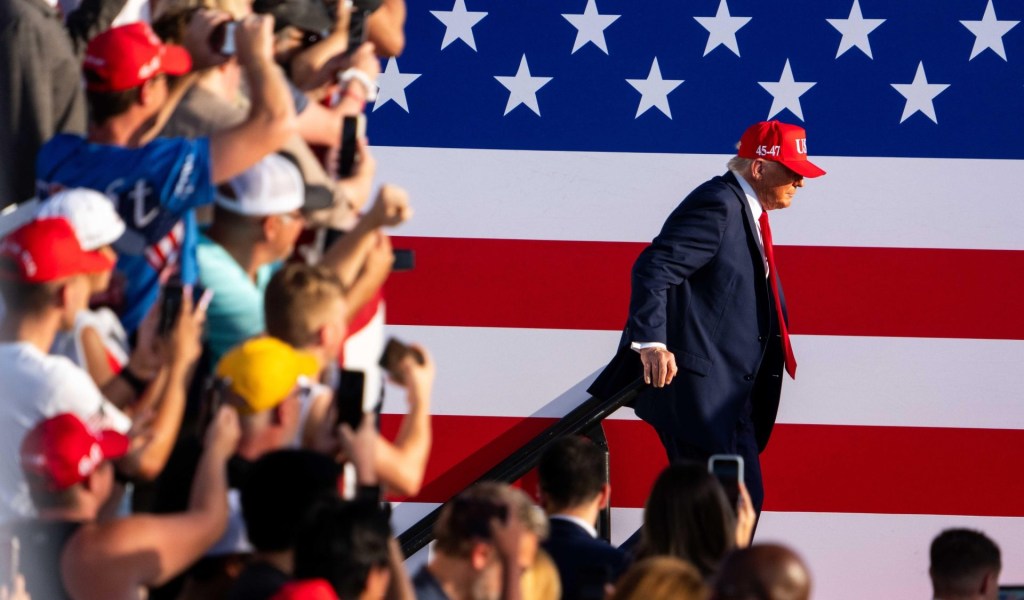
In a democracy, few acts are as consequential and important than the act of voting.
While it may be easy to choose not to take 15-20 minutes to cast your ballot, the decision not to vote becomes more difficult when you reflect upon the last hundred years of voting rights in the United States. The right to vote and the accessibility of voting has improved substantially but not enough; from gerrymandering to voter ID laws, minorities and different protected classes of people still struggle against institutional methods of voter suppression borne out of the days of reconstruction and Jim Crow.
There has never been a more important time to exercise your right to vote; so, when you exercise your right to cast a ballot in November (after first checking to make sure that you are, in fact, registered to vote on Vote.Org), educate yourself and keep an eye out for the issues and candidates that are important to you.
SEE MORE: Former NFL Player’s New Political App Aims to Instill Change
Seeing that, by virtue of reading this article, you are a sports fan, it would be pertinent to know how the sports industry may be affected by various candidates and ballot measures ahead of November’s critical midterm election.
Alex Howard, who runs political campaigns across the country for people aspiring to serve, elaborated on why candidates with sports backgrounds and sports-related referenda are so popular ahead of this year’s midterm elections:
“Historically, sports have always played a role in the fabric of American culture; more so now with the dialogue about sports and social justice issues which even the President of the United States inserted himself into. Candidates with professional sports experience —like Colin Allred and J.D. Scholten — prove that there is so much more to an athlete than just the sport they play.”
SEE MORE: Cardinals Lead the Charge In the Future of NFL Coverage
“The American political system was designed to be run by normal citizens; and there is nothing more representative of the citizens of the United States than those who represent the sports industry: a key component of the American economy and a reservoir of inspiration for Americans seeking to overcome adversity.”
When it comes to sports at the ballot, Front Office Sports has you covered:
CANDIDATES
Colin Allred is an impressive candidate running for the United States House of Representatives in Texas’ 32nd Congressional District. Allred is a former Tennessee Titans linebacker who left his career in football to attend law school and become a Civil Rights attorney. In addition to his accomplishments as a football player and as an attorney, Allred worked in the White House under former Housing and Urban Development Secretary Julian Castro.
J.D. Scholten is a former minor league baseball player running for the United States House of Representatives in Iowa’s 4th Congressional District. Scholten, who was endorsed by former Presidential candidate Bernie Sanders’ Political Action Committee Our Revolution, is a fifth-generation Iowan. The 6-foot-6 Scholten touts his desire to “stand tall” for the people of his district.
REFERENDA
MIAMI: The Miami Referendum regarding the approval of the MLS/Melreese-site stadium is a complex and controversial one. Read here for more information.
FLORIDA: In Florida, a Referendum regarding Dog Racing would allow voters to ban gambling on dog races in the state of Florida. This referendum is one that is long overdue as gambling on dog racing is banned in 44 states.
Dog racing is extremely deleterious to a dogs health and owners of racing dogs frequently force them to compete with injuries; according to the ASPCA, “Injuries common to [racing dogs] forced to race include severed toes, broken legs, spinal cord paralysis, broken necks and cardiac arrest.”
Also, Florida’s ballot will feature an anti-casino gambling measure; it is an amendment that expressly bans casino gambling and would need to be undone by either a successful lawsuit/Constitutional challenge or through a subsequent ballot measure. “The “Voter Control of Gambling Amendment,” largely bankrolled by a Disney company and the Seminole Tribe of Florida, would require voter approval for any form of casino gambling, an issue now largely controlled by the state Legislature.”
SAN DIEGO: The San Diego referendums regarding the approval of proposed stadiums is a complicated one; San Diego apparently has two competing ballot measures which both propose sports stadiums on the same exact plot of land.
San Diego’s city attorney filed emergency petitions to stop both from appearing on the ballot in August but ultimately failed. The panel of judges who ruled on the emergency petitions stated: “We decline to eliminate the right of the public to express its views on the competing initiatives.” For clarity on these measures, read here.
SPOKANE: In Washington state, the citizens of Spokane will get the opportunity to voice their support or opposition to a proposed high school stadium constructed on behalf of Spokane Public Schools.
This ballot measure, however, is not binding on the school district; it is merely advisory. The city council voted to oppose this measure before sending it to the ballot for the advice of its’ citizens.
MARYLAND: Citizens of the beautiful state of Maryland will get the chance to vote this November on whether their state should adopt sports gambling.
After the Supreme Court struck down PASPA for being violative of the 11th Amendment, states became free to choose how they would proceed with sports gambling within their borders. If Maryland chooses to legalize sports gambling, it will become the sixth state to implement full-scale legalized sports betting.
So, how will the sports business industry be affected by midterm elections? We’ll find out. Stay tuned as we’ll be updating this voting guide through the coming weeks.
















